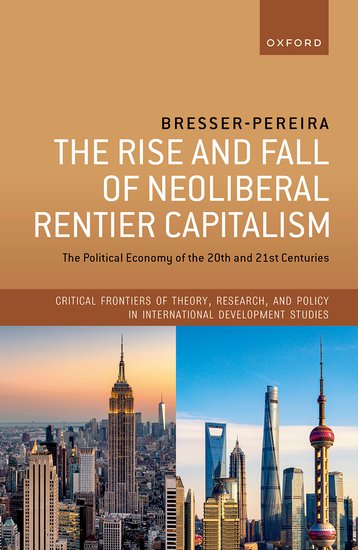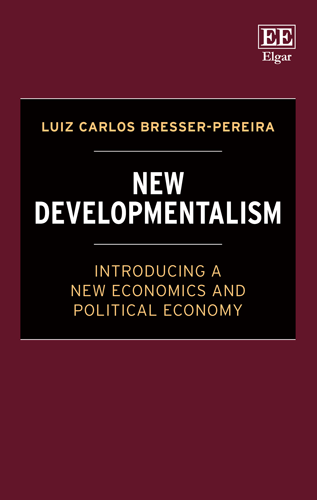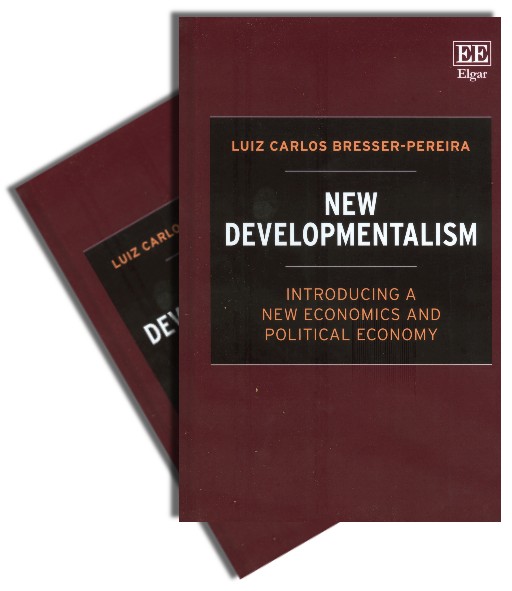Luiz Carlos Bresser-Pereira
Cambridge: Cambridge University Press, 2010.
.
Available at Amazon
In French: Mondialisation et Cométition (Éditions La Decouverte)
In Portuguese: Globalização e Competição (Elsevier)
Preface by Robert Boyer in French
Preface by Robert Boyer in Portuguese
Globalization and Competition focus on middle-income countries in the framework of commercial and financial globalization: the first viewed as an opportunity, the second as a curse. The objective is to explain why some emerging countries are successful in catching up while others are not. The argument is divided into two parts. In the first part I develop six political economy propositions:
1. global capitalism is characterized by strong economic competition not only among business enterprises but also among countries or nation-states
2. such competition made countries more interdependent and relatively less autonomous but also made their governments more strategic since increased interdependence derived from increased economic competition
3. the countries that are successful in the competition are the ones that strength their nation and adopt a national development strategy
4. after World War II many developing countries adopted a national developmentalist strategy that was successful in promoting industrialization and in changing them into middle income countries
5. a major foreign debt crisis in the 1980s and the exhaustion of old national strategy coupled with neoliberal ideological hegemony led countries to adopt conventional orthodoxy or the Washington consensus, that caused balance of payment crises and increased inequality instead of growth
6. after the financial crises of the 1990s, and given the successful economic strategies of several Asian countries, a new developmentalism is emerging - new developmentalism - that the book compares with old national developmentalism and with conventional orthodoxy.
In the second parte I develop seven development macroeconomics propositions centered on the exchange rate:
1. new developmentalism is a development macroeconomics strategy that sees the major development obstacles in the demand side, and asks that, in relation to the internal market, that economic policy assures that wages grow with productivity (what is not assured given the unlimited supply of labor), and, in relation to the external markets, that the exchange rate is competitive (not overappreciated)
2. a competitive exchange rate is the one that makes viable economically tradable industries using state-of-the-art world technology
3. there is in developing countries a structural tendency to the overvaluation of the exchange rate that, if not neutralized, is a major obstacle to the diversification and growth of the national economy
4. the two structural causes behind this tendency (the Dutch disease, and higher profit and interest rates attracting foreign capitals) are magnified by mistaken economic policies: growth with foreign savings policy (current account deficits), capital deepening, exchange rate anchors, coping with the "two gap" assumption, and the practice of "exchange rate populism" - that must be neutralized if the country is to realize the catching up
5. the Dutch disease is market failure that makes the "current equilibrium" exchange rate more appreciated than "industrial equilibrium" exchange rate (the one that makes viable tradable industries using technology in the state of the art)
6. contrarily to a widespread belief, the growth with foreign savings policy coupled with financial opening does not promote growth but, in the limit, causes financial crises, and, always, the artificial increase of wages and consumption or, in other words, a high rate of substitution of foreign for domestic savings
7. financial crises in developing countries are usually balance of payment crises deriving from the suspension of the rolling over of the foreign debt by foreign creditors in consequence not so much of fiscal deficits, but of the growth with foreign savings policy.
Treize propositions en résumant Mondialisation et Compétition

























































